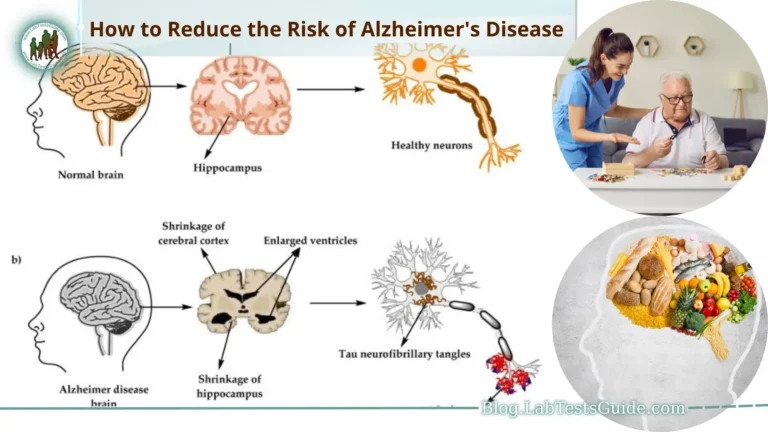Preventive services are an essential component of healthy living. These services are designed to identify health problems before they become serious and prevent the onset of chronic diseases. Preventive services may include a variety of tests, screenings, immunizations, and counseling sessions. The goal of these services is to promote good health and help people maintain healthy lifestyles. In this article, we will explore the importance of preventive services for healthy living and highlight some of the recommended preventive services. We will also discuss how to access these services and why they are critical to maintaining good health.

Importance of Preventive Services for Healthy Living:
Preventive services are critical to maintaining good health and preventing the onset of chronic diseases. These services can help identify health problems before they become serious, allowing health care providers to take the appropriate steps to manage or treat the condition.
Preventive services can also help people maintain healthy lifestyles. For example, screening tests and regular checkups can help people stay on top of their health and make lifestyle changes if needed. Vaccines can protect against diseases and illnesses, while counseling sessions can help people manage stress, anxiety and other mental health problems.
Preventive services can also pay off in the long run. By identifying and managing health problems early, people can avoid expensive medical treatment or hospitalization that may be necessary if the condition is left untreated.
Recommended Preventive Services:
Some of the most common ones includ.
- Vaccines: Vaccines are important to protect against infectious diseases such as influenza, pneumonia, and shingles.
- Cancer screening: Cancer screening tests can help find cancer at an early stage, when it is most treatable. Recommended cancer screening tests include mammograms, Pap smears, colonoscopies, and prostate exams.
- Blood pressure screening: High blood pressure can lead to heart disease, stroke, and kidney disease. Blood pressure tests can help identify high blood pressure early and allow for appropriate treatment.
- Cholesterol screening: High cholesterol levels can increase the risk of heart disease and stroke. Cholesterol screening tests can help identify high cholesterol levels and allow health care providers to recommend lifestyle changes or medications if necessary.
- Diabetes Screening: Diabetes screening tests can help identify prediabetes or diabetes early on, allowing for proper management and treatment.
- Bone density test: A bone density test can help identify osteoporosis, a condition that weakens the bones and increases the risk of fractures.
- Colorectal cancer screening: Colorectal cancer screening tests can help find cancer at an early stage, when it is most treatable.
- Mental Health Screening: Mental health screenings can help identify mental health issues like depression and anxiety, allowing people to seek appropriate treatment.
- Vision and hearing exams: Vision and hearing exams can help identify vision and hearing problems early, allowing for appropriate treatment.
- Smoking cessation counseling: Smoking cessation counseling can help people quit smoking, reducing the risk of lung cancer, heart disease, and other health problems.
It is important to note that recommended preventive services may vary based on age, gender, family history, and other risk factors. People should talk with their health care provider to determine what preventive services are recommended for their specific needs.
Food Services for Healthy Living:
Here are some foods that are beneficial for maintaining good health.
- Fruits and vegetables: Fruits and vegetables are packed with essential vitamins, minerals, and fiber. They can help reduce the risk of chronic diseases like heart disease, diabetes, and cancer.
- Whole Grains: Whole grains like brown rice, quinoa, and whole wheat bread are high in fiber, vitamins, and minerals. They can help improve digestive health, reduce the risk of heart disease, and promote weight management.
- Lean Proteins: Lean proteins such as chicken, fish, and legumes are essential for building and repairing tissues in the body. They may also help promote weight control and reduce the risk of heart disease.
- Healthy fats: Healthy fats like avocado, nuts, and olive oil can help reduce the risk of heart disease and improve brain function.
- Low-fat dairy products: Low-fat dairy products such as milk, yogurt, and cheese are rich in calcium and vitamin D, which are essential for maintaining healthy bones.
- Water: Staying hydrated is important for overall health and well-being. Drinking plenty of water can help regulate body temperature, maintain healthy skin, and promote proper digestion.
It is important to note that portion sizes and total calorie intake are also important factors to consider when maintaining a healthy diet. It is recommended that individuals consult with a healthcare provider or registered dietitian to determine their specific dietary needs and make personalized dietary recommendations.
Life Changes for Healthy Living:
Here are some recommended lifestyle changes that can lead to better health.
- Exercise Regularly: Regular physical activity can help maintain a healthy weight, reduce the risk of chronic disease, and improve mental health. It is recommended to perform moderate intensity exercise for at least 150 minutes a week.
- Quit smoking: Smoking is a major risk factor for many chronic diseases, including lung cancer, heart disease, and stroke. Quitting smoking can significantly improve overall health and reduce the risk of chronic disease.
- Cut back on alcohol: Excessive alcohol consumption can increase your risk of liver disease, certain cancers, and mental health disorders. It is recommended to limit alcohol consumption to moderate levels, which is up to one drink a day for women and up to two drinks a day for men.
- Manage stress: Chronic stress can negatively affect overall health and well-being. Engaging in stress management techniques like meditation, yoga, and deep breathing exercises can help reduce stress levels.
- Get enough sleep: Getting enough sleep is essential to maintaining good health. Adults should aim to get 7-8 hours of sleep a night.
- Maintain Social Connections: Social connections can help promote mental and emotional well-being. Maintaining social connections with family, friends, and the community can lead to a happier, healthier life.
It is important to note that making lifestyle changes can be challenging and may require support from health care providers, family, and friends. Small changes made over time can lead to lasting improvements in overall health and well-being.
Conclusion:
Preventive services, including regular checkups, screenings, immunizations, and healthy lifestyle choices, are essential to maintaining good health and reducing the risk of chronic disease. Access to preventive services can be through health care providers, health insurance plans, community health clinics, workplace wellness programs, and government programs. Making lifestyle changes, such as exercising regularly, quitting smoking, reducing alcohol intake, managing stress, getting enough sleep, and maintaining social connections, can also lead to lasting improvements in overall health and well-being. . It is important to consult with a health care provider to determine what preventive services and lifestyle changes are necessary based on individual needs. By prioritizing preventive services and making healthy lifestyle choices, people can promote healthy living and achieve a better quality of life.






